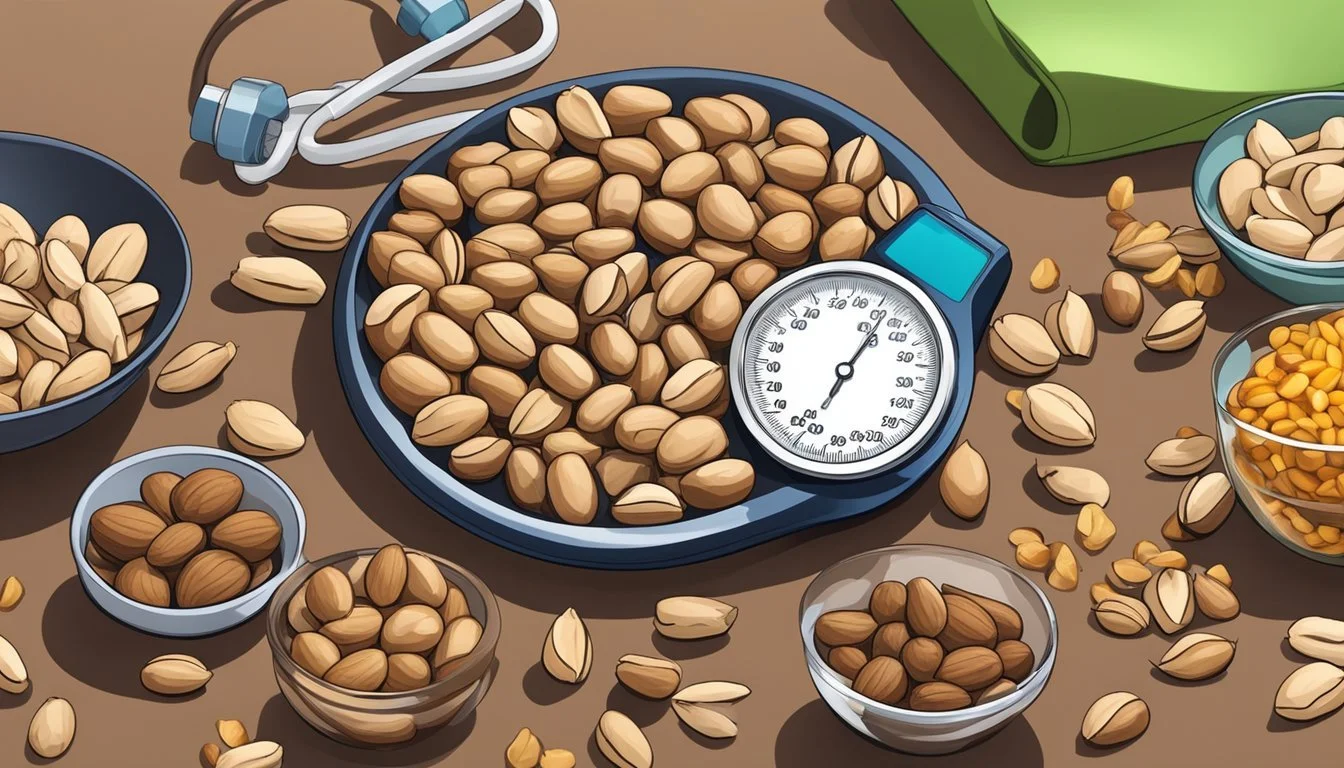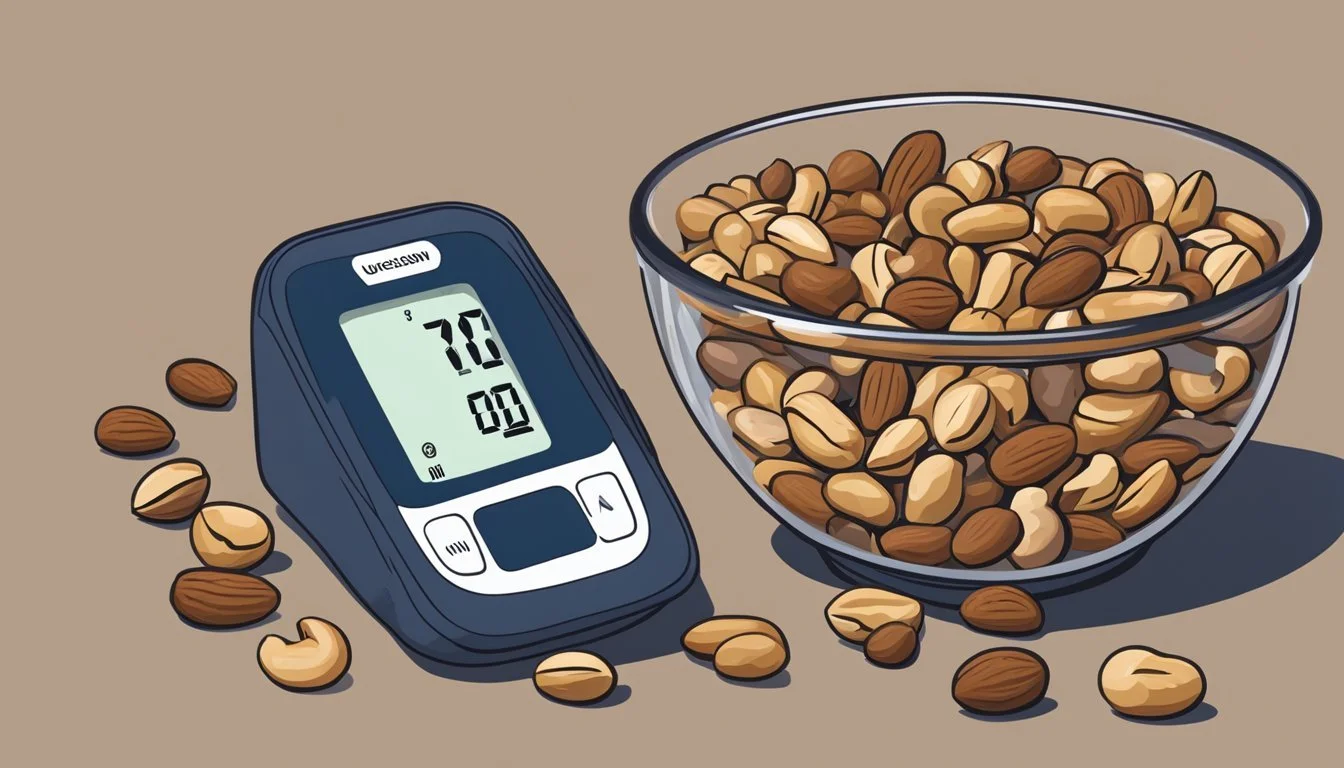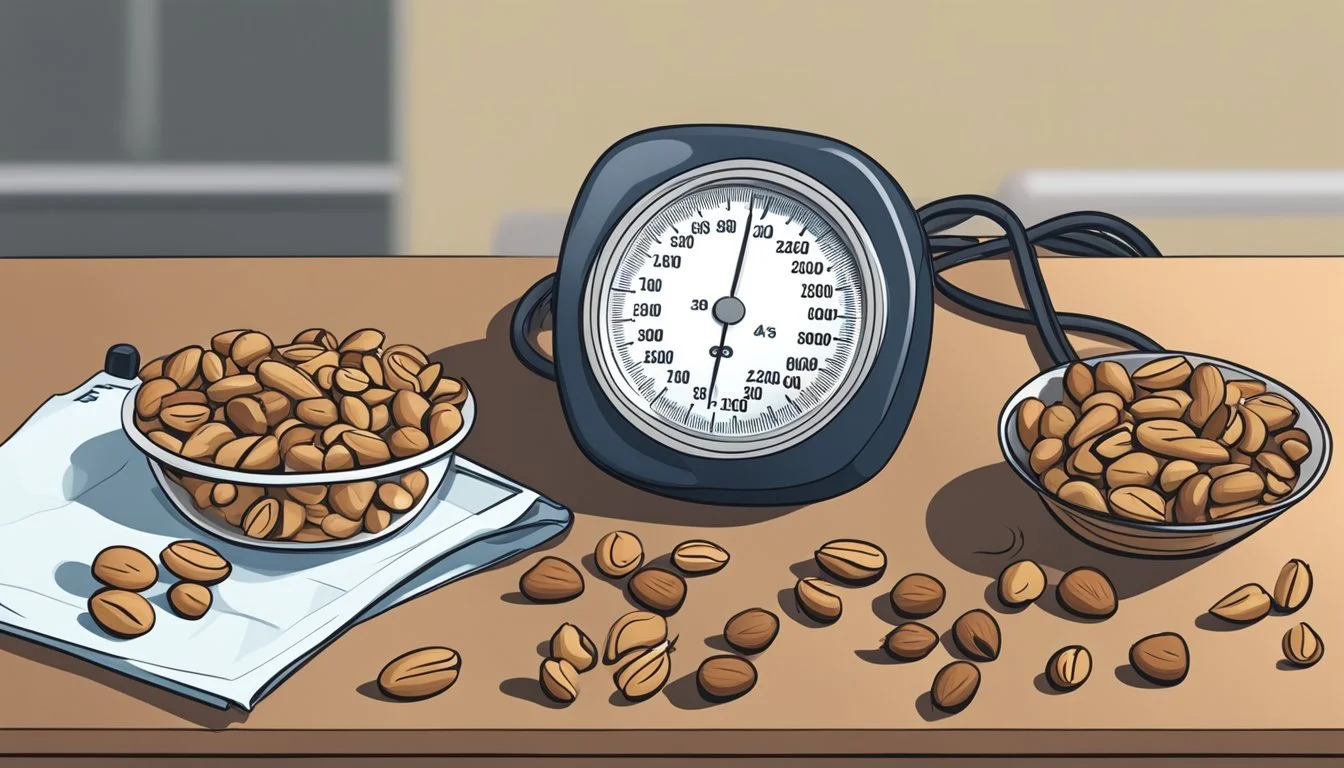Is it okay to eat nuts if I have hypertension?
Understanding the Effects on Blood Pressure
Eating nuts can be beneficial for individuals with hypertension, commonly known as high blood pressure. Nuts are a rich source of essential nutrients that have been associated with various health benefits, including potential positive effects on heart health. They contain healthy fats, proteins, fibers, vitamins, and minerals which can improve artery health and may help in reducing inflammation—factors that are important for those managing high blood pressure.
Incorporating nuts into a diet has been linked to a lowered risk of heart-related issues such as heart attacks and strokes because they can potentially decrease the risk of blood clots. Some studies suggest that nuts can also be instrumental in managing high cholesterol levels, thereby contributing to a healthier cardiovascular system. Nevertheless, it's crucial to bear in mind that nuts are calorie-dense foods and should be consumed in moderation.
Individuals with hypertension are often advised to focus on their diet as part of their management plan. Foods that support heart health and aid in controlling blood pressure are emphasized. The regular inclusion of a variety of nuts, such as almonds and walnuts, can be part of a balanced diet. However, patients with hypertension should always consult with healthcare professionals before making significant dietary changes to ensure that the addition of nuts to their diets is appropriate for their specific health needs.
Understanding Hypertension
Hypertension, commonly known as high blood pressure, is a chronic medical condition where the force of the blood against the artery walls is too high. It typically requires long-term management, including medication and lifestyle changes, especially dietary modifications.
The Role of Diet in Hypertension
One’s diet plays a crucial role in the management of hypertension. Consuming foods low in sodium and rich in nutrients can help regulate or lower blood pressure.
Sodium is a significant factor; excess sodium can cause the body to retain water, raising blood pressure.
Diets such as the DASH (Dietary Approaches to Stop Hypertension) are specifically designed to help individuals manage their blood pressure. This diet encourages:
High intake of fruits and vegetables
Whole grains
Low-fat dairy products
Nuts and legumes
Foods to limit or avoid are those high in:
Salt (sodium)
Saturated fats
Trans fats
Added sugars
Blood Pressure Basics
Blood pressure is measured by the amount of blood the heart pumps and the resistance it encounters in the arteries. It's typically recorded with two numbers:
Systolic pressure: The higher number represents the pressure in the arteries when the heart beats.
Diastolic pressure: The lower number represents the pressure in the arteries when the heart is at rest between beats.
Healthy blood pressure should be below 120/80 mmHg. Regular monitoring can help individuals understand their blood pressure patterns and respond appropriately with dietary and lifestyle changes.
Nuts and Heart Health
Eating nuts can be beneficial for heart health, particularly due to their nutrient composition and their ability to positively influence cholesterol levels and inflammation.
Nutrient Profile of Nuts
Nuts are a powerhouse of nutrients with a significant contribution to heart health. They possess high levels of unsaturated fatty acids, both monounsaturated and polyunsaturated, which are crucial for maintaining heart health. Additionally, they are a good source of dietary fiber, which supports digestive health and helps manage cholesterol levels. Nuts also contain a variety of antioxidants, including vitamin E, which protect the body's cells from damage.
Effects on Cholesterol and Inflammation
Regular consumption of nuts has been associated with beneficial effects on blood cholesterol levels. The unsaturated fats in nuts can help lower low-density lipoprotein (LDL) or 'bad' cholesterol and raise high-density lipoprotein (HDL) or 'good' cholesterol. This balance is vital in reducing the risk of heart disease. Moreover, nuts contain compounds that possess anti-inflammatory properties. Chronic inflammation is a known risk factor for heart disease, and by reducing it, nuts contribute to overall heart health.
Analyzing Nut Consumption in Diets
Nut consumption, when incorporated into specific diets like the DASH and Mediterranean diets, can be beneficial for individuals with hypertension. Nuts provide essential nutrients without excessive sodium, which is crucial for managing blood pressure.
DASH Diet Insights
The Dietary Approaches to Stop Hypertension (DASH) diet specifically recommends consuming nuts as part of a diet aimed to reduce blood pressure. This diet emphasizes the intake of:
Whole grains
Fruits and vegetables
Lean protein sources, such as fish
A limited amount of sodium
Nuts fit into this diet due to their high content of unsaturated fats, minerals, and fiber, which contribute to cardiovascular health. However, it’s important to control portions to avoid excessive calorie intake.
Mediterranean Diet and Nuts
The Mediterranean diet upholds a similar philosophy to the DASH diet in its recommendation of nuts. Typical components of this diet include:
High consumption of fruits and vegetables
Whole grains
Fish as a primary protein source
Olive oil as the main source of fat
Nuts are consumed regularly within the Mediterranean diet, providing healthy fats and proteins while offering varied nutrients supporting overall health. Like the DASH diet, nut consumption should be moderated, focusing on unsalted and raw varieties to align with hypertension dietary guidelines.
Research on Nuts and Blood Pressure
Recent studies indicate that consuming nuts can have a favorable impact on blood pressure, which is a crucial factor in managing hypertension.
Types of Nuts and Their Effects
Almonds: Almonds contain bioactive compounds beneficial to cardiovascular health, and research has shown that they may lower systolic blood pressure. Walnuts: Walnuts have been studied for their cardiovascular health benefits, including their potential to lower blood pressure due to their omega-3 fatty acid content and antioxidative properties.
In both cases, it's not just the type of nut, but also the form—unsalted nuts are preferable, as added salt can negate the potential blood pressure-lowering effects.
Serving Sizes and Frequency
Serving of nuts: A standard serving is generally considered to be about one ounce (28 grams), which equates to a small handful.
Frequency: Regular consumption, such as a few servings per week, is associated with improved cardiovascular outcomes according to longitudinal studies.
It is important to note that while nuts can be a healthful part of the diet, moderation is key to avoid excessive calorie intake.
Practical Advice for Nut Consumption
In managing hypertension, selecting unsalted nuts and integrating them into one's diet strategically can contribute positively to a heart-healthy lifestyle.
Choosing the Right Nuts
When selecting nuts for a hypertension-friendly diet, the emphasis should be on unsalted varieties. Salt can contribute to increased blood pressure, making unsalted nuts a superior choice. Almonds, walnuts, and pistachios are often recommended due to their beneficial fat profiles. Seeds, such as flaxseeds or chia seeds, also provide similar nutritional benefits.
Almonds: Rich in magnesium, which helps regulate blood pressure.
Walnuts: High in alpha-linolenic acid, a type of omega-3 fatty acid.
Pistachios: May have positive effects on blood pressure due to their potassium content.
Incorporating Nuts into a Balanced Diet
Nuts can be a part of a balanced diet, but moderation is key due to their calorie density. One should integrate nuts into their diet alongside fruits, vegetables, whole grains, lean protein, and low-fat dairy. Using nuts as a replacement for saturated fats found in meats can lead to a more heart-healthy diet.
Here are specific ways to include nuts in your diet:
Add a small handful of nuts to oatmeal or yogurt.
Use nut butter in smoothies or as a spread on whole-grain toast.
Sprinkle seeds or chopped nuts over salads to enhance texture and nutritional content.
Bear in mind that while nuts are nutritious, they should be consumed in appropriate portions to avoid excessive calorie intake. A typical serving size is a small handful, or approximately 1.5 ounces of whole nuts, or 2 tablespoons of nut butter.
Related Health Considerations
When considering nuts in the context of hypertension, it is crucial to be mindful of their effects on weight management and blood sugar control, as these factors can influence heart health and the risk of cardiovascular events such as heart attacks and strokes.
Managing Weight and Nut Intake
Nuts are energy dense and can contribute to weight gain if consumed in large quantities. However, when eaten in moderation, they offer healthy fats and can be a part of a weight management strategy. Here are key points to keep in mind:
Portion Control: It's vital to monitor portion sizes to avoid caloric excess that can lead to obesity.
Nut Selection: Choose unsalted and raw or dry-roasted nuts to minimize sodium intake, which is crucial for individuals managing hypertension.
Nuts and Diabetes Management
Nuts have a low glycemic index and can be beneficial in managing blood sugar levels for people with or at risk of type 2 diabetes. The following points are important:
Nutritional Profile: Nuts provide essential nutrients that may have a positive impact on diabetes control and heart health.
Regular Consumption: Including nuts as a part of a balanced diet could be conducive to maintaining healthy blood sugar levels and may reduce the risk of diabetes-related heart complications.
Recommended Lifestyle Changes
Making lifestyle changes is a pivotal step for individuals managing hypertension. Focusing on regular exercise and dietary adjustments can contribute significantly to heart health and blood pressure control.
Exercise and Heart Health
Regular physical activity strengthens the heart, enabling it to pump blood with less effort and reducing the pressure on arteries. Adults should aim for at least 150 minutes of moderate-intensity aerobic exercise weekly, such as brisk walking, swimming, or cycling, to maintain optimal heart health.
Reducing Sodium and Added Sugars
Excessive intake of salt and added sugars has been linked to elevated blood pressure levels. It's imperative to:
Limit sodium: Strive to consume less than 2,300 mg per day. Reading food labels and choosing low-sodium options can help maintain healthy blood pressure.
Cut back on sugar: Aim to limit added sugars, which can also contribute to hypertension. Individuals should opt for foods low in added sugars and use natural sweeteners like fruit when possible.
Incorporating these lifestyle changes into one’s routine can be a powerful approach in the management of hypertension.
Conclusions
In the context of hypertension and heart health, research indicates that a moderate consumption of nuts can be beneficial. Nuts are rich in dietary fiber, healthy fats, and essential nutrients that contribute to cardiovascular well-being.
Key Takeaways:
Nuts should be eaten in moderation due to their caloric density.
They offer dietary fiber, which supports arterial health.
Most studies suggest a positive correlation between nut consumption and reduced risk of cardiovascular disease.
Recommendations for Individuals with Hypertension:
Choose unsalted nuts to avoid excess sodium.
Incorporate a variety of nuts for a broad spectrum of nutrients.
Monitor portion sizes to prevent caloric overconsumption.
In summary, for individuals managing hypertension, nuts can be a valuable addition to a heart-healthy diet when consumed thoughtfully and in recommended amounts.







